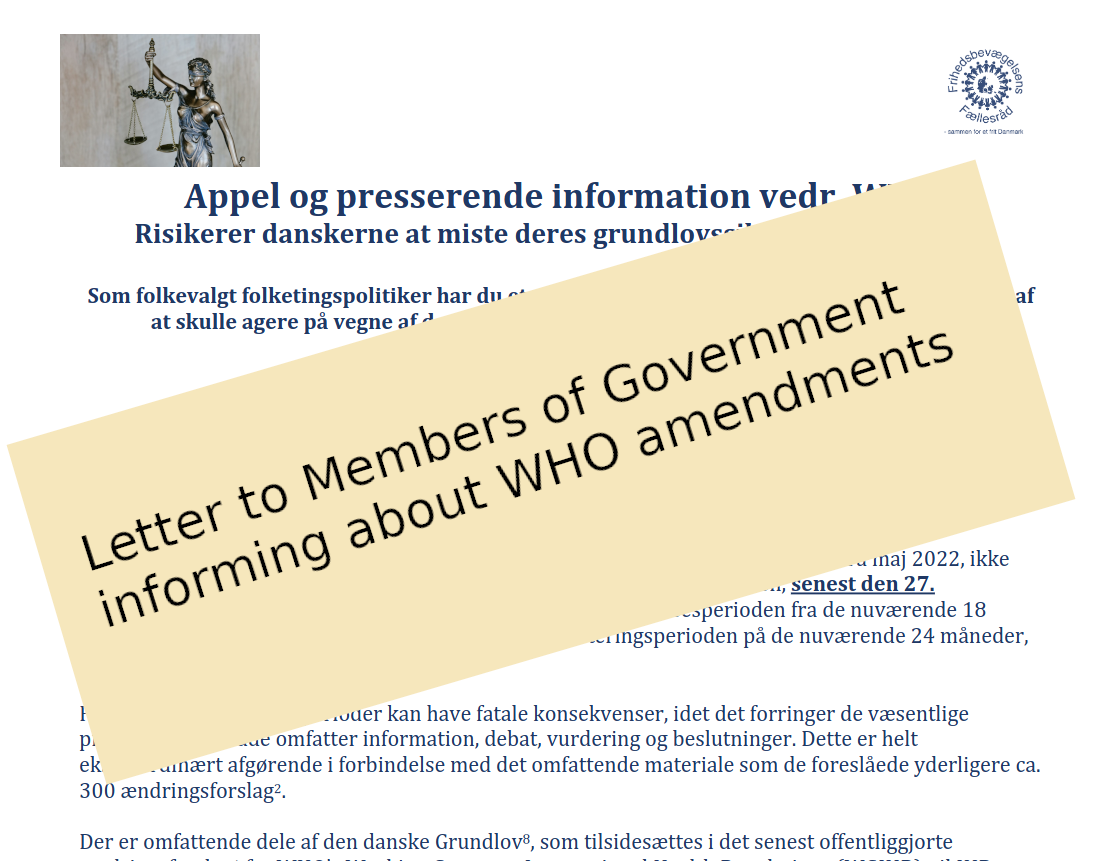A letter sent from Frihedsbevægelsens Fællesråd notifying members of government in Denmark of the grave concerns associated with the WHO amendments.
Source: Frihedsbevægelsens Fællesråd

A letter sent from Frihedsbevægelsens Fællesråd notifying members of government in Denmark of the grave concerns associated with the WHO amendments.
Source: Frihedsbevægelsens Fællesråd